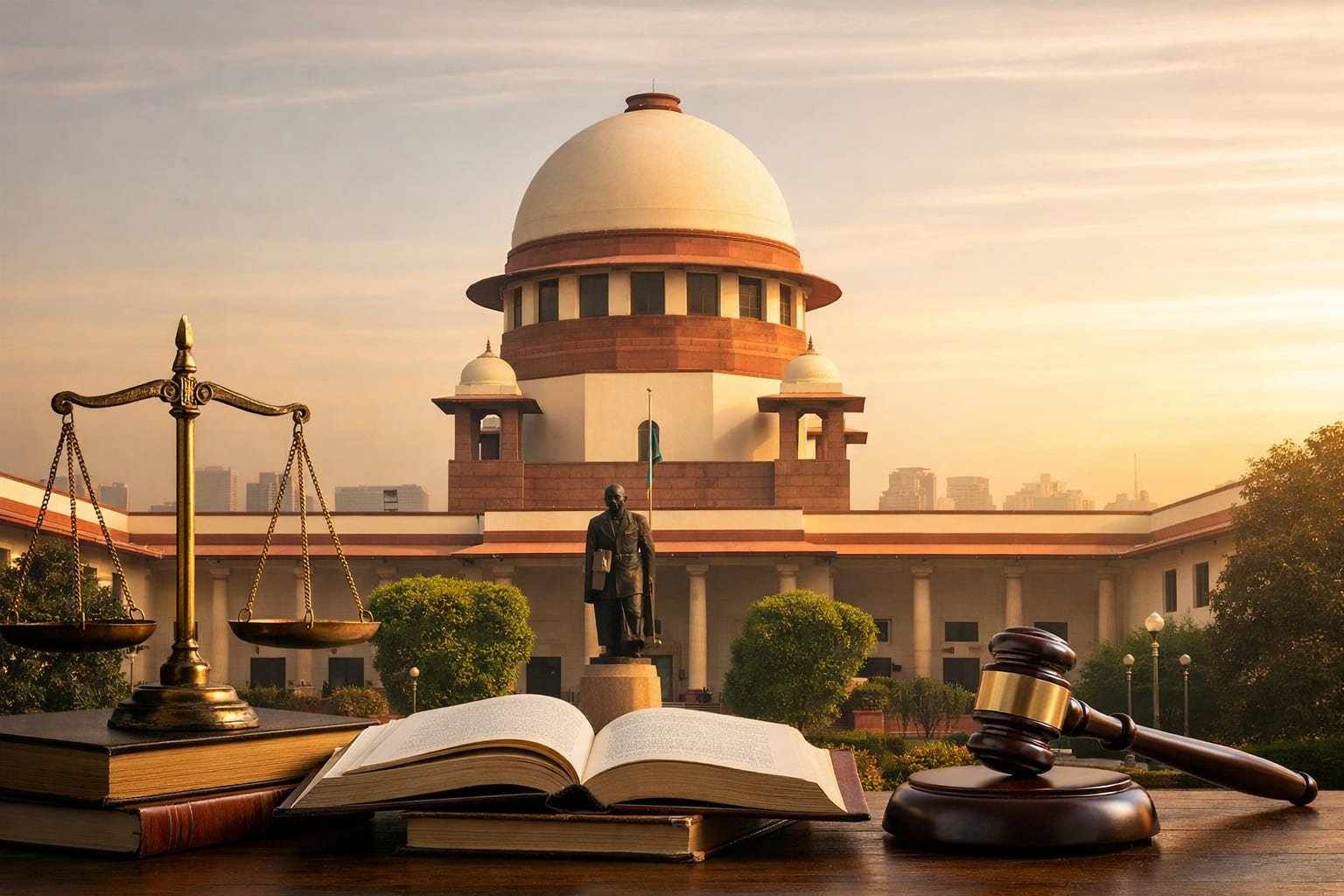Divorce is never an easy decision. For couples in Delhi, the thought of navigating complex family laws, court procedures, and emotional upheaval can be overwhelming. However, with the right legal guidance, you can ensure that your interests are protected and the process is as smooth as possible.
At Patrons Legal, our experienced divorce lawyers in Delhi have helped countless clients make informed decisions, protect their rights, and start afresh. This comprehensive guide breaks down how to file for divorce in Delhi — step by step — so you know what to expect and how to prepare.
Understanding Divorce Laws in Delhi
Before you start, it is important to understand that divorce in India is governed by various personal laws depending on your religion:
-
Hindus, Buddhists, Sikhs, and Jains: Hindu Marriage Act, 1955
-
Muslims: The Dissolution of Muslim Marriages Act, 1939, and Shariat Law
-
Christians: Indian Divorce Act, 1869
-
Parsis: Parsi Marriage and Divorce Act, 1936
-
Interfaith marriages: Special Marriage Act, 1954
Each Act has its grounds and procedures for filing for divorce. In Delhi, most couples file under the Hindu Marriage Act or the Special Marriage Act if they had a civil marriage.
Types of Divorce Petitions
In India, you can file for divorce in two ways:
1️⃣ Mutual Consent Divorce:
-
Both spouses agree to end the marriage amicably.
-
This is generally faster, less expensive, and less stressful.
2️⃣ Contested Divorce:
-
One spouse files for divorce without the other’s consent.
-
This requires proving one or more legal grounds, such as cruelty, adultery, desertion, or mental disorder.
-
It often involves lengthy proceedings and evidence.
Eligibility Criteria for Filing for Divorce in Delhi
Before you file, ensure you meet the following:
-
You or your spouse must have lived in Delhi for at least six months before filing.
-
Your marriage must be legally valid under the relevant marriage law.
-
There must be valid grounds for divorce (for contested cases).
Where to File for Divorce in Delhi
Divorce petitions are filed in the Family Courts, which are located in various district courts in Delhi, such as:
-
Tis Hazari Court
-
Patiala House Court
-
Saket Court
-
Dwarka Court
-
Rohini Court
-
Karkardooma Court
The appropriate court depends on where you or your spouse resides or where you last lived together.
Step-by-Step Guide to Filing for Divorce in Delhi
Let’s break down the entire process for both mutual consent and contested divorce.
A. Mutual Consent Divorce
Step 1: Consult an Experienced Divorce Lawyer
Even if the decision is mutual, having a good lawyer ensures your rights are protected, paperwork is error-free, and future disputes are avoided.
Step 2: Draft and File the First Motion Petition
Your lawyer will prepare a joint petition signed by both spouses. It includes:
-
Statements from both parties consenting to divorce.
-
Agreement on issues like child custody, alimony, maintenance, and property division.
The petition is filed in the appropriate Family Court with supporting documents:
-
Marriage certificate.
-
Proof of residence.
-
Passport-size photographs.
-
Income and asset details (if relevant).
Step 3: First Court Appearance
Both spouses must appear in court on the scheduled date. The court records the statements and, if satisfied, passes an order for the first motion.
Step 4: Six-Month Cooling-Off Period
A six-month waiting period is provided under the Hindu Marriage Act for reconciliation. However, the Supreme Court has ruled that this can be waived in certain circumstances if the marriage is beyond repair.
Step 5: File Second Motion Petition
After six months (or earlier, if waived), both parties appear again to confirm their intention to divorce. The court records the statements.
Step 6: Decree of Divorce
If the court is satisfied that all conditions have been met and there’s no possibility of reconciliation, it grants a decree of divorce, legally dissolving the marriage.
Timeline: 6 months to 1 year (depending on the court’s schedule and waiver).
B. Contested Divorce
Step 1: Consult a Specialist Divorce Lawyer
Contested divorces can be complex. A seasoned lawyer helps you understand your grounds, gather evidence, and build a solid case.
Step 2: Identify the Grounds for Divorce
Under the Hindu Marriage Act, valid grounds include:
-
Cruelty (mental or physical)
-
Adultery
-
Desertion for over two years
-
Conversion to another religion
-
Unsoundness of mind
-
Venereal disease
-
Renunciation of the world
-
Presumption of death (missing for 7 years)
Step 3: Draft and File the Petition
Your lawyer will draft a petition detailing facts, allegations, and relief sought. The petition is filed in the Family Court along with supporting evidence.
Step 4: Service of Summons
The court issues a summons to the other party to appear and file a written statement.
Step 5: Response by the Opposite Party
The spouse responds by filing a written statement refuting or accepting the allegations.
Step 6: Court Hearings and Evidence
Both parties present their evidence and witnesses. Cross-examination takes place.
Step 7: Mediation
The court may refer the case to mediation for possible reconciliation.
Step 8: Final Arguments and Judgment
After examining evidence and arguments, the judge passes the final judgment, granting or dismissing the divorce.
Step 9: Decree of Divorce
If granted, a certified copy of the decree can be obtained from the court registry.
Timeline: Contested divorces may take 2–5 years, depending on complexity, evidence, and appeals.
Documents Required for Divorce Filing
Whether mutual or contested, you generally need:
✅ Marriage certificate
✅ Address proof of both parties
✅ Passport-size photographs
✅ Proof of last living together
✅ Evidence supporting your grounds (messages, photos, medical records, witness statements)
✅ Income, asset, and liability details for maintenance/alimony
Child Custody, Maintenance, and Alimony
These issues are critical parts of any divorce proceeding:
-
Child Custody: Indian courts prioritize the child’s welfare. Child custody is decided in the child’s best interest, considering their age, health, education, and comfort.
Types of custody:
- Physical Custody: Child lives primarily with one parent.
- Joint Custody: Both parents share responsibilities.
- Visitation Rights: Non-custodial parent gets visitation access.
-
Maintenance & Alimony: Maintenance for the spouse and children can be one-time (lump sum) or periodic.
-
Property Division: Settlements are usually negotiated outside the court, but courts may intervene if disputes remain.
Important Tips to Keep in Mind
✅ Don’t Hide Facts: Be honest with your lawyer for the best results.
✅ Stay Civil: Avoid public confrontations or defamation.
✅ Save Communication: Preserve evidence like chats, emails, or photos.
✅ Be Mediation-Friendly: Courts appreciate efforts to settle amicably.
✅ Stay Patient: Legal proceedings can be lengthy — trust the process.
Why Hire Patrons Legal for Your Divorce Case in Delhi?
At Patrons Legal, we understand that divorce isn’t just a legal matter — it’s an emotional journey too. Here is why hundreds of clients trust us:
⭐ Experienced Family Law Team: Seasoned divorce lawyers for both mutual and contested cases.
⭐ Tailored Strategy: We craft a customized approach tailored to your unique situation.
⭐ Transparent Advice: We tell you the truth, not just what you want to hear.
⭐ Confidentiality Assured: Your privacy is our top priority.
⭐ Strong Representation: We fight to protect your rights and interests.
Conclusion
Divorce can be life-changing, but you don’t have to face it alone. Let our expert divorce lawyers in Delhi guide you every step of the way — from understanding your options to securing your future. Filing for divorce in Delhi may feel overwhelming, but the right legal guidance makes all the difference. We hope this detailed, step-by-step guide provides you with clarity and confidence as you take the next steps.
If you are ready to discuss your case, our team at Patrons Legal is here to stand by you with compassion, expertise, and strong legal representation.








Leave a Reply